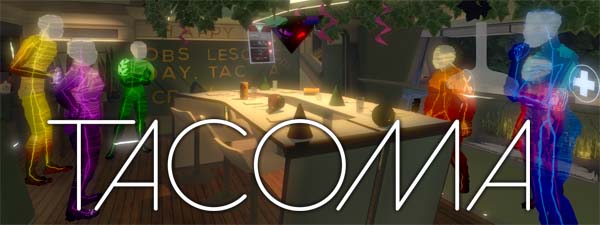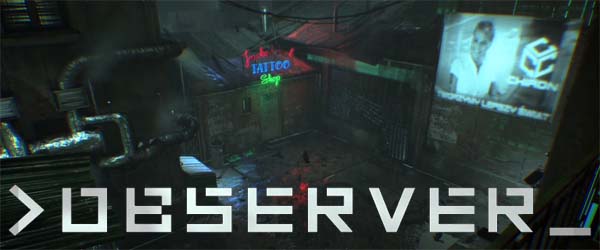Fanboys have been demanding it for years, and now, finally Warner Brothers has seen fit to grace audiences with a version of Zach Snyder's original vision for the Justice League movie. And you know what? It's actually not that bad.
I would have been much less tolerant of the movie's 4 hour runtime if I had been stuck having to sit quietly and watch it in a theater. Being able to watch it at home, on the comfort of a couch, with friends, and able to stop to go to the bathroom or take a snack break, really helped to make the movie feel like less of a drag than it otherwise might have.
Zack Snyder's Justice League is 4 hours long, but is a much better movie than the theatrical cut.
Heck, the movie almost seems designed for audiences to get up a few times to take a break and maybe even chat about what's going on. The movie is broken up into 5 or 6 "parts", with each part beginning with a title card showing a name for the part. It's essentially divided up into 40-ish minute episodes as if it were a TV mini-series.
As such, each character gets time to shine. They all get more development, and they all have a unique role to play in the final confrontation. The whole conflict isn't just won because Superman shows up. Each of the other characters still has to do their part. Well, the heroes all get meaningful roles. Louis Lane still feels like she could have been cut from the movie entirely and it wouldn't make a difference, even though she's supposedly the key to preventing the disastrous future that keeps showing up in Batman's dreams.
Doing good for the sake of good
Perhaps most importantly, the heroes in this movie feel a little more like the heroes that we know from the comic books, even if they are still darker, edgier, and exceedingly grim and emo all the time. Unlike in Man of Steel and Dawn of Justice, these depictions of Superman, Batman, and so forth actually seem to care about everyday people, and we have multiple scenes of some of them going out of their way to fight crime and save lives. Better yet, their selfless acts are not depicted as being done as a begrudging obligation that they'd rather not be bothered with. These heroes actually do good for the sake of doing good. They also don't spend the whole movie bickering with one another, let alone indulging in the petty conflicts or dick-measuring contests presented in Dawn of Justice.
The heroes act more like heroes.
It's impossible to know how much of this was originally part of Snyder's vision at the inception of the DCEU, or if it was course-correction based off of feedback of Man of Steel and Dawn of Justice, but Snyder's Justice League is surprisingly lighter in tone than either Man of Steel or Dawn of Justice. But not to the point of self-parody that was present in Joss Whedon's re-shot mess of a film. [More]
80eed31e-fd22-46ea-91f5-cc1aeb63cabc|1|5.0
Tags:Justice League, Zack Snyder, Warner Brothers, HBO, streaming, DC Comics, Superman, Batman, Wonder Woman, Aquaman, Flash, Cyborg, Steppenwolf, Darkseid, The Snyder Cut

Here's another short sci-fi game from my Steam backlog. Tacoma is Fullbright's sci-fi follow up to its masterful walking sim Gone Home. This time around, instead of playing as a young girl discovering the secrets of your family, you play as an agent of a corporate conglomerate sent to retrieve the company's A.I. hard drive from a defunct space station in which an emergency threatened to kill the entire crew. Instead of reading notes and journal entries, you instead replay holographic representations of logs that the station's onboard A.I. recorded of conversations between the station's crew members.
You have to eavesdrop on recorded conversations as holograms move around the station.
The whole process is much more active and player-driven than the exposition of Gone Home (and other walking sims) because the holographic recordings of the characters move around the stations and converse in real time. You don't just walk into a room and read a conspicuously-placed note or listen to passive narration. You'll have to follow the characters between rooms, and keep track of multiple conversations at once as the characters come and go, and as they split up from large group meetings and start to have smaller, more private conversations. Each recording will usually have 2 or 3 independent conversation threads for you to follow. As you follow each character around, you'll also be spying on their personal text messages and emails.
This gives a greater sense of participation from the player (compared to many other walking sims) and provides a greater illusion that you are solving a mystery. That being said, there's nothing too challenging about finding and listening to all the possible conversations. They aren't elaborate puzzles that will take time to figure out. You just follow each character around the space and listen to them. It keeps the player interacting with the game space without ever applying a high bar for progress.
Don't expect to be stumped by the puzzles.
Without spoiling too much, there is only one ending, and you aren't going to be punished for not uncovering all the available evidence. The worst aspect of the game's "walkign sim" nature is that you're also never asked to apply any of the knowledge that you acquire from your investigations other than a handful of numeric combination codes for unlocking doors and the like. These codes are basically just progress gates to provide the illusion that the game has "puzzles", but the early exposure to these key codes will further encourage the player to snoop around more thoroughly for potential clues to future puzzles or progress gates. It isn't very intellectually challenging, but it does encourage the player to pay more attention.
[More]
ad0da423-9efe-41a3-b0fc-37ab8db4fe16|0|.0
Tags:Tacoma, Fullbright, science fiction, walking simulator, artificial intelligence, corporate culture, stock market, Amazon, Tyson Foods, COVID-19, pandemic
![Event [0] - title](/image.axd/2021/3/Event0-title-600x250.jpg)
Continuing on through my years-old backlog of indie Steam games, I moved away from Bloober Team games, but stuck with the sci-fi genre and played one of the most innovative games from 2016. I may be five years late to this one, but Event [0] is still a unique sci-fi mystery game that no other developers seem to have tried to emulate. As such, the game still holds up quite well.
The central premise here is that you find yourself in an abandoned space station in orbit around Jupiter. Your only companion is an onboard A.I. named Kaizen who talks to you through text on computer terminals scattered throughout the small station. The gimmick here is that all your interactions with Kaizen are handled by typing questions or commands into the computer terminals using your keyboard. The game uses some natural speech recognition algorithms to parse your text, interpret its meaning, and compose an appropriate response for Kaizen. It's like installing CleverBot into your game as an NPC.
The only other character is the possibly-malfunctioning onboard A.I., who you can type questions or commands to.
Even 5 years later, it's still a wholly unique way of interacting with an in-game NPC, and Kaizen comes off as being fairly believable. It certainly helps that the developers decided to make Kaizen an A.I. character instead of a human NPC, since it makes your interactions with Kaizen feel a bit more natural and believable. And when Kaizen gives a nonsensical response, it's easy to chalk it up to it being a malfunctioning A.I..
You are expected to explore the space station, investigating the environment for clues, and asking Kaizen questions to help you unravel the mystery of what happened to the crew of the station. The station only has a handful of rooms, and only had [I think] 3 crew members on it, so it doesn't take long to figure out what happened. In fact, the whole game is playable within about 2 or 3 hours, and repeat play throughs (to get alternate endings or whatever) can be completed in an hour or less. [More]

Once again, it is spring time. All the big holiday releases are out, and I didn't need to bother playing them because they were all crap. So I spent all my time on the indie football games. Well now football season is over too, and I'm done with my critique of the indie football games. So it's time to dig into my Steam backlog and try to play some of the games that have been sitting around for years without being played.
I've been on a Bloober bender lately, playing through Layers of Fear 2 and The Medium, so I decided I'd check out their other game: the cyberpunk horror >Observer_.
Dialogue trees and player-driven exploration gives the player a greater sense of agency than in Layers of Fear.
Bloober seems much more cynical about trans-humanism compared to Frictional
Having played a few of Bloober's games, I was expecting a visual treat. If nothing else, Bloober's games are technically impressive in the ways that they depict surreal environments. I was curious how this would translate into a cyberpunk setting. It doesn't disappoint, as the game is a visual and technical treat from start to finish. But much like Bloober's other games, Observer is a technical treat, but as a game, it has definite shortcomings.
Observer lags behind other stand-out sci-fi games like The Swapper, Soma, and Outer Wilds by not really using the gameplay mechanics to convey its sci-fi concepts. Soma is an especially apt comparison because both games deal with transhumanist themes. I feel like Soma is a lot more thoughtful, thorough, and laser-focused on its singular main idea; whereas Observer is a bit more scatter-shot and surface-level with its various cyberpunk dystopian ideas.
You're given a few moral decisions that relate directly to the game's themes of transhumanism.
Observer also never really challenges the player to think too hard about the moral, ethical, or metaphysical consequences of your choices. There's a decision at the end of the game that determines which of two endings you get, and there's a couple optional side quests that culminate in the player making a moral decision based on what you've learned about how this world operates, and whether you think the technology is being mis-used. There's also dialogue trees that give the player the opportunity to poke and prod at how the other characters perceive this world, and to imbue a little bit of your own characterization on the protagonist. So yes, it does engage the player with the story's subject matter a little bit, which is certainly a heck of a lot more than Layers of Fear ever did.
It does fall apart a little bit in practice because the whole game is so cynically distrustful of the technology and institutions that employ them. The game only ever shows the pain, suffering, and degradation of human dignity that the cyberpunk revolution brought, but it never bothers to show any redeeming qualities of the technology. We're told that there are wealthy "A" and "B" class citizens, but we never see how they live, nor are we given any real hint at how much of the population is trapped in the disgusting squalor of these tenement buildings, or if this lifestyle is common in the rest of the world outside of Poland. By choosing to only show the heavy human toll that this technology has taken, and not giving the player any additional background knowledge or context, I feel like Bloober kind of makes the player's decisions for us.
Bloober is a bit cynical and heavy-handed in its depiction of cyberpunk dystopia.
It pales in comparison to the other games I mentioned (Soma in particular), which actually had me stopping dead in my tracks and really thinking about my choices. It's not "bad" story-telling per se (and in fact, the visual aspect of the story-telling is superb!); it's just not particularly interactive story-telling. Beyond Bloober leading the player towards these specific moral choices, there's not much else in the way of decisions or opportunities to apply the ideas towards any particular challenges or obstacles. [More]

The third (and presumably final) update for Madden 21's long-neglected franchise mode is finally live. Madden franchise players finally have the full Madden 21 franchise mode to play with -- in March ... a full month after the SuperBowl and the end of the NFL season. Obviously, this is too little, and too late for me to bother changing my review of Madden 21 or to change my mind about my long-standing frustration with the lack of attention that EA is paying to Madden's franchise mode.
This update will supplement some of the superficial changes made in the earlier updates with some slightly more substantive upgrades. On the superficial end of the spectrum, it adds a league history that tracks SuperBowl champions, seasonal awards, and other information from year-to-year. On the more substantive end of the spectrum, it also makes some long-overdue revisions to CPU teams' trade logic. CPU teams will supposedly be better at evaluating trade proposals, will value elite offensive linemen more highly, and can no longer be tricked into thinking that a reserve player is a starting-caliber talent simply by moving the player up on your depth chart.
Good thing I had already completed my trades for Quentin Nelson and Deshaun Watson to the Bears before this update went live; otherwise, I might not have been able to get either player -- let alone both. Not that it matters, I probably won't be putting much more time into Madden 21. I'll likely have to play a few more games to capture footage for the next installment(s) of my "How Madden Fails To Simulate Football" video series.
The only reason I would continue playing Madden 21 would be to capture footage
for my "How Madden Fails To Simulate Football" video series.
A good sign for the future of Franchise?
Madden's current executive producer, Seann Graddy went on YouTube to prior to the patch releasing to sing its praises as part of EA's continuing effort to provide lip service to Franchise players. In this video, he also gave Franchise players a sneak peak at what we can expect in next year's game. On Graddy's computer screen in the background, we can see a "Staff Management" screen showing the Chicago Bears' head coach, Matt Nagy, along with an offensive coordinator named Sam Norris, a defensive coordinator named Bill Lando, and a fourth slot that simply says "player personnel". This means that players should expect to see offensive and defensive coordinators return in Madden 22 -- something that has been sorely missing from the game since (I think) Madden 13.
EA's preview of the 3rd Franchise update for Madden 21 gives clues about what will be in Madden 22.
I don't recognize the names Sam Norris or Bill Lando. The Bears' current offensive and defensive coordinators are Bill Lazor and Sean Desai (respectively). Sam Norris and Bill Lando were not the names of previous coordinators either. I looked both names up on Google, and didn't find any results for Chicago Bears coaches. These are either place-holder names for a feature that is still a work-in-progress, or it is evidence that Madden 22 will not have real-life coordinator names. [More]
|

| 12 | | | | | | | 60 | | 11 | | | | | | | 55 | | 10 | | | | | | | 50 | | 09 | | | | | | | 45 | | 08 | | | | | | | 40 | | 07 | | | | | | | 35 | | 06 | | | | | | | 30 | | 05 | | | | | | | 25 | | 04 | | | | | | | 20 | | 03 | | | | | | | 15 | | 02 | | | | | | | 10 | | 01 | | | | | | | 05 |
|